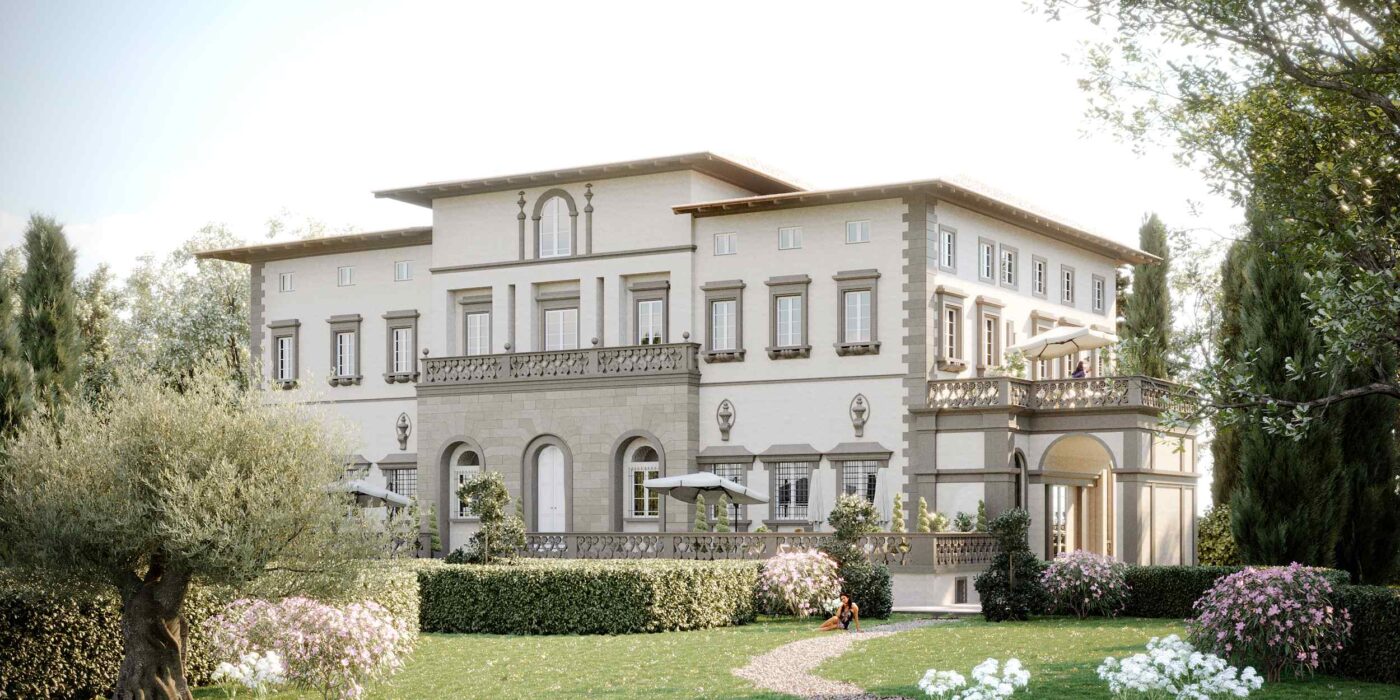Trump’s Tariff Turmoil May Boost Luxury Real Estate As Investors Seek Stability
As global markets reel from sweeping trade policies, high-end housing could become a safe haven for wealth preservation
President Donald Trump’s sweeping new tariffs on imported goods from 60 countries have plunged global stock markets into turmoil, sparking recession fears. Yet this controversial trade policy could unexpectedly benefit the luxury real estate market.
https://www.youtube.com/shorts/54Gx6xDtrts
Stock market performance typically has an outsized impact on high-end home buyers, who are more likely to invest in stocks than their less wealthy counterparts. As of April 6, the S&P 500 had tumbled by 15% since Trump’s inauguration in late January, according to CNN, amid growing economic uncertainty. Following his tariff rollout on April 2, which the president touted as “Liberation Day,” stock markets worldwide suffered an estimated loss of about $10 trillion in market value.
Days of volatile trading ensued as China retaliated with 84% tariffs on U.S. goods. On April 9, the European Union approved new levies of its own on $23 billion in U.S.-made products, according to Reuters. Trump then responded by pausing all new tariffs for 90 days, with the notable exception of China, against whom he increased tariffs to 125%.
Market Volatility Creates Real Estate Opportunity
Despite the economic turbulence, a potential silver lining exists. This market volatility could prompt jittery investors to shift from stocks to high-end real estate “as they seek the reliability of a tangible asset,” Realtor.com® Chief Economist Danielle Hale predicts in her 2025 Luxury Housing Market Outlook.
“In an economic environment riddled with uncertainty, investors are seeking out safe havens. For many, this is found in bonds, but real estate may be an alternative for some,” says Hale. “While real estate can lose value, it is a tangible asset that not only provides shelter, it tends to have more stable pricing than stocks.”
Should Trump reverse course again and fully implement the tariffs as announced, Hale warns that could undermine economic growth, diminish incomes and investment returns, and shrink homebuyers’ purchasing power.
“For now, it looks like a reprieve has been issued for many countries, but as we’ve seen very clearly in the last few weeks, the situation can change, so it’s wise for high-end-home buyers to stay abreast of the news,” Hale notes.
High-End Real Estate: Room For Growth
For affluent house hunters, the good news is that the luxury real estate market has substantial room for expansion. The total value of domestic household real estate reached the second-highest level ever recorded at the end of 2024, according to a Realtor.com analysis, totaling $48.1 trillion—a 7% increase from the previous year. Notably, the largest gains in real estate value were among the ultrarich.
Even so, real estate comprised just 18.7% of total assets among the wealthiest 10% of U.S. households, down from just under 20% two years prior. Meanwhile, corporate equities—including futures and other financial instruments, as well as mutual fund shares—made up more than a third of their assets, the highest share ever recorded.
Simply put, real estate constituted a smaller portion of affluent portfolios late last year, signaling significant growth potential in the high-end housing market.
“The combination of significant stock market wealth and relatively low debt in real estate among the wealthiest 10% suggests that this cohort has more capacity for real estate investment,” says Hale.
The Realtor.com economist cautions that real estate carries its own challenges, including property taxes, insurance costs, maintenance, and upkeep. “Still, real estate can be a place to park money, and when the world feels uncertain, we often see an interest in home and real estate purchases,” Hale adds.
Russian Buyers Return To American Luxury Market
The appeal of U.S. luxury housing has apparently not been lost on wealthy Russians, who have reportedly resumed purchasing expensive properties in New York City after a decade-long pause.
“I’ve had five Russians look at properties in the $10 million to $20 million range in the past few weeks—condos and town houses,” a New York broker told Air Mail.
The shift, according to the unnamed broker, relates to Trump’s relationship with Russian President Vladimir Putin, whom he previously praised as a “genius” and “savvy” before relations cooled over the proposed Ukraine peace deal. Nevertheless, the evolving relationship between the two leaders has seemingly done little to diminish wealthy Russians’ homeownership ambitions in the United States.
“They aren’t afraid to buy anymore,” the broker told the outlet about the incoming Eastern European investors.
This renewed interest appears linked to the Trump administration’s more welcoming stance toward Russian oligarchs compared to its Democratic predecessor. While sanctions against Putin’s government and Russian companies remain in effect, the current Justice Department has eliminated units that investigated questionably sourced money invested in real estate and luxury assets.
A Douglas Elliman broker told Air Mail that her Russian clients currently living in Monaco are eager to purchase U.S. real estate, citing the value they place on American education and high-quality new construction.
Luxury Housing Market Performance
Data from the National Association of Realtors® indicates that the $1 million-plus category of homes has been the fastest-growing sales share for 21 consecutive months and now constitutes 7.6% of recent home sales. The primary reason: affluent homebuyers more frequently have substantial existing equity and don’t need to rely on mortgage financing, making them less sensitive to high interest rates.
However, the number of for-sale homes priced above $1 million has decreased, representing an average of 12.8% of all listings year-to-date in 2025, down from 13.6% in 2024.
Time on market for luxury listings decreased slightly from 76 to 75 days, even as homes priced below $1 million remained unsold for 64 days, up from 58 the year before. Additionally, price cuts have increased from 20.8% to 22.6% among homes with asking prices below $1 million, but remained approximately flat among luxury properties.
As global markets navigate the uncertain waters of new trade policies, the luxury real estate sector may emerge not only resilient but strengthened, providing both shelter and financial stability for those with the means to invest.
Source for both the English and Italian version of the article: Realtor



